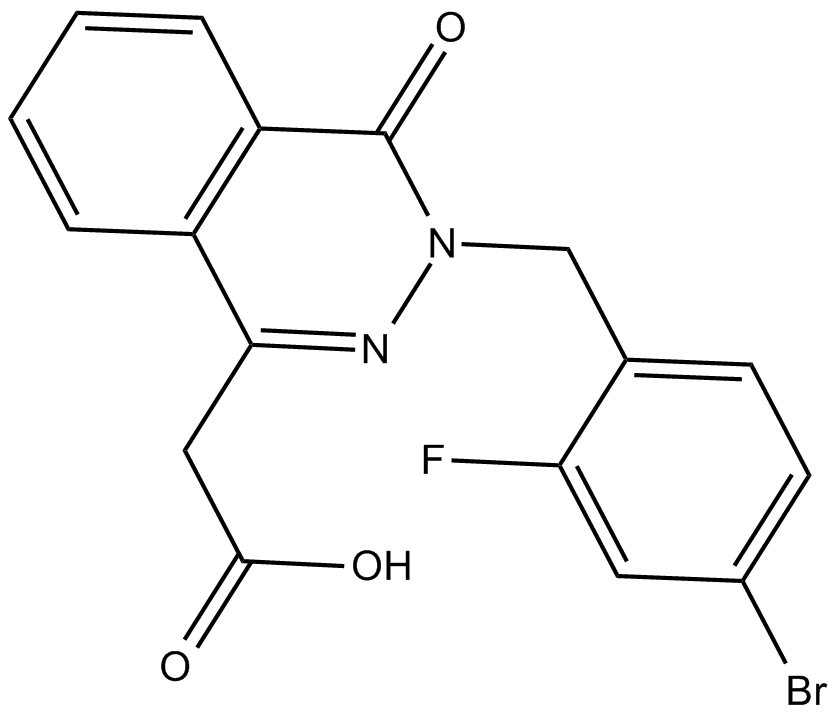Statil (Synonyms: ICI 128436,MK-538,Ponalrestat) |
| Catalog No.GC10958 |
Statil (ICI 128436) is an orally active, selective and noncompetitive aldose reductase (AKR1B1; ALR) inhibitor.
Products are for research use only. Not for human use. We do not sell to patients.

Cas No.: 72702-95-5
Sample solution is provided at 25 µL, 10mM.
IC50: 21.0 nM
Statil, also known as ICI 128436, is an aldose reductase inhibitor, inhibits the conversion of glucose to sorbitol. Statil has the ability to activate the activity of lipoprotein lipase (LPL) both in vivo and in vitro. Also, statil alleviates the cachectic symptoms induced by B16 melanoma in mice. LPL, as a key regulatory enzyme, is responsible for the hydrolysis of triglyceride-rich lipoproteins.
In vitro: Statil strongly, dose-dependently, inhibited the enzyme activity of tumor marker Aldo-keto reductase 1B10. In addition, statil suppressed the cell growth and proliferation dose-dependently in both lung cancer cells NCI-H460 and breast cancer cells BT-20. Also, it was shown that statil induced apoptotic cell death [1].
In vivo: Statil was given to diabetic male rats at 25mg/kg orally by gavage once daily. After five days, statil inhibited rat, bovine, and human aldose reductase and reduced sorbitol levels in sciatic nerve, retina, lens, and renal cortex. Moreover, statil played an important role in rodent models of the lenticular and neural complications of diabetes. And the development of cataracts was completely prevented in diabetic rats at doses as low as 25 mg/kg daily [2].
References:
[1]. Cao, Z., Zhou, B., Chen, X., Huang, D., Zhang, X., & Wang, Z. et al. Statil suppresses cancer cell growth and proliferation by the inhibition of tumor marker AKR1B10. Anti-Cancer Drugs, 2014; 25(8): 930-937.
[2]. Stribling, D., Mirrlees, D., Harrison, H., & Earl, D. Properties of ICI 128,436, a novel aldose reductase inhibitor, and its effects on diabetic complications in the rat. Metabolism, 1985; 34(4): 336-344.
Average Rating: 5 (Based on Reviews and 27 reference(s) in Google Scholar.)
GLPBIO products are for RESEARCH USE ONLY. Please make sure your review or question is research based.
Required fields are marked with *



















